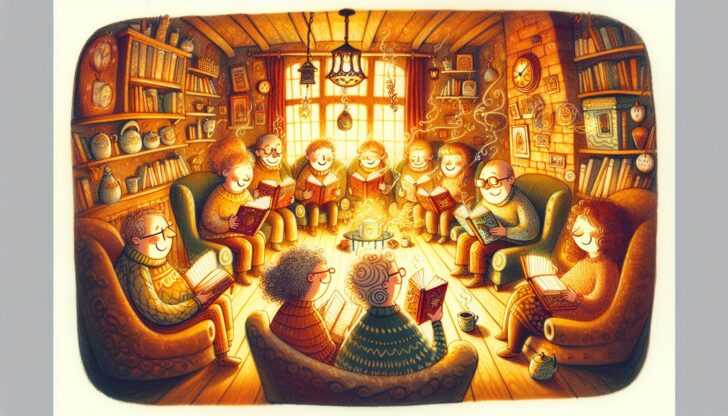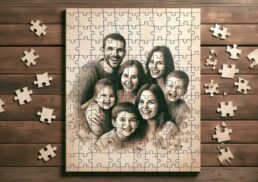Need riddles with an answer to entertain and challenge you? You’ve found them! With 121 riddles for all ages, this article has everything from easy riddles aimed at children to tricky brain teasers. Dive in and start solving!
Table of Contents
Key Takeaways
Riddles provide fun mental challenges for all ages, promoting creative and critical thinking skills.
Different types of riddles, from wordplay to math and themed puzzles, cater to various interests and learning levels.
Solving and creating riddles enhances language development, boosts social interaction, and offers cognitive benefits.
Easy and Funny Riddles With Answers

Solving a fun and lighthearted riddle brings unique joy. These easy and funny riddles delight both kids and adults, offering a way to engage your brain without feeling overwhelmed. Simple, often hilarious, these riddles are sure to bring a smile to your face.
What do you call a bear without teeth? A gummy bear!
Riddles often use puzzling or misleading wording, demanding creative, outside-the-box thinking. Below are some of the best riddles, guaranteed to entertain and offer just the right amount of challenge.
Fun Wordplay Riddles
Wordplay riddles stretch your brain while providing fun. They play with words, meanings, and sounds to create clever puzzles that need a unique perspective. Take this classic riddle: “What five-letter word becomes shorter when you add two letters to it?” The answer is “short.”
Here’s a fun one for kids: “How many letters are in the alphabet?” The trick answer is “There are 11 letters in ‘the alphabet’.”
Another favorite involves a bit of alphabetical trickery: “What is the only word in the dictionary that is always spelled incorrectly?” The answer is “incorrectly” itself. These funny riddles not only entertain but also encourage you to think about language in new and exciting ways.
Simple Math Riddles
Math riddles combine logical thinking with numerical fun. They are simple yet challenging enough to make you think twice. For example: “What can you put between 7 and 8 to get a number greater than 7 but less than 8?” The answer is a decimal point, making it 7.8.
Another engaging riddle is: “How many apples do you have if you take away 2 from a basket of 3?” The answer is still 2, as you have taken them away but still possess them.
Here’s a fun one: “What odd number becomes even when you remove a letter?” The answer is seven, which becomes even when the ‘s’ is removed.
These simple math riddles are perfect for honing your arithmetic skills while having a bit of fun.
Tricky and Challenging Riddles With Answers
To push mental boundaries, tricky and challenging riddles are ideal. These riddles test critical thinking and problem-solving skills, often requiring multiple angles of consideration. They emphasize the journey your mind takes to find the answer.
Here’s a riddle for you: Imagine a one-story house where everything inside is red. The walls are red, the furniture is red, and even the floors are red. What color are the stairs? The answer is that there are no stairs because it is a one-story house.
Tricky riddles challenge young minds and stimulate thinking in ways that are both entertaining and educational. Whether you’re a seasoned riddle solver or just looking for a new challenge, these puzzles are sure to keep you on your toes.
Brain Teasers
Brain teasers require lateral thinking, pushing you to approach problems from unexpected angles. For instance: “You see a bus driver going down a one-way street the wrong way. He passes the police, but they don’t stop him. Why?” The answer: the bus driver was walking, not driving.
Another classic brain teaser involves a bit of misdirection: “What has a neck but no head?” The answer is a bottle. Engaging with these types of riddles not only sharpens your reasoning skills but also enhances overall cognitive abilities.
Here’s a riddle that highlights unusual aspects: “What is the only place where today comes before yesterday?” The answer: the dictionary. This riddle exemplifies the cleverness required to solve brain teasers by pointing out unexpected aspects of common knowledge.
Hard Logic Riddles
Hard logic riddles challenge reasoning abilities, demanding deep thinking and careful consideration of all given information to find the correct solution.
An example of this is: “Four cars come to a four-way stop, all at the same time. They are unable to agree on who should go first. As a result, everyone moves forward simultaneously. No one crashes into each other. How is this possible?” The answer is that they all made right turns.
Another tough one to crack: “What gets wetter as it dries?” The answer, surprisingly, is a towel.
Here’s a riddle with the same upside: “What five-letter word can be read the same way upside down?” The answer is ‘SWIMS’.
These hard riddles push you to utilize critical thinking and problem-solving skills, making them some of the best riddles for mental stimulation.
Themed Riddles for Kids
Kids enjoy riddles, especially when themed around favorite topics. Themed kids riddles challenge young minds, enhance analytical thinking, and provide entertainment. Fun, engaging, and educational, they serve as great tools for learning and bonding.
Solving riddles together can promote family bonding by fostering fun collaborative activities. Whether you’re looking for animal riddles, holiday-themed puzzles, or school-related brain teasers, there’s something here for every young riddle enthusiast.
Animal Riddles
Animal riddles are always a hit with kids. They’re entertaining, engaging, and often teach children about different animals and their characteristics. For example: “How many teeth does a polar bear have?” The answer is 42.
Another fun one: “Which snakes marry?” The answer is “adders,” as they add [Fact 3.1_2]. These riddles not only entertain but also support cognitive development and language manipulation in children.
Here’s a new one: “What do you call a sick boat?” The answer is “a dock-tor!”
Holiday Riddles
Holiday riddles are perfect for bringing a bit of festive cheer while challenging young minds. They’re designed to entertain and engage audiences of all ages during festive celebrations. For example: “Which one of Santa’s reindeer can be seen on Valentine’s Day?” The answer is Cupid.
Another holiday favorite: “What kind of ball doesn’t bounce?” The answer is a snowball. These riddles add a fun twist to holiday gatherings and keep everyone entertained.
School-Related Riddles
School-related riddles are a great way to make learning fun. They encourage students to think critically and creatively while providing a bit of humor. For example: “What is the math teacher’s favorite place in New York?” The answer is Times Square.
Another example: “What starts with an E, ends with an E, but only contains one letter?” The answer is an envelope. These riddles are perfect for sparking group discussions and encouraging children to come up with their own puzzles.
Here’s a fun one: “How do you spell ‘cow’ using thirteen letters?” The answer is “C-O-W in thirteen letters.” This riddle plays with language and spelling, making it a great addition to any classroom activity.
Unique Riddles for Adults

Riddles aren’t just for kids. Unique riddles for adults often combine humor and cleverness to engage the audience. They can vary widely, from humorous and tricky to thought-provoking and complex.
With over 100 unique riddles designed specifically for adults, there’s something for everyone, whether you’re looking for a light-hearted laugh or a serious mental challenge. Let’s dive into some of the best riddles tailored for the adult mind.
Funny Riddles for Adults
Funny riddles for adults are designed to elicit laughter and entertain. They often employ clever wordplay and unexpected hints that lead to humorous conclusions. For example: “Why did the scarecrow win an award?” Because he was outstanding in his field.
Another amusing riddle: “Why don’t scientists trust atoms?” Because they make up everything. These witty riddles are perfect for lightening the mood and bringing a smile to your face.
Difficult Adult Riddles
Difficult riddles for adults are designed to engage deep thinking and creativity. They often require advanced logic skills and a keen mind. For example: “What has keys but can’t open locks?” The answer is a piano.
Another challenging riddle: “David’s father has three sons: Snap, Crackle, and who?” The answer is David.
These riddles not only entertain but also enhance critical thinking and problem-solving skills in adults.
Benefits of Solving Riddles
Solving riddles isn’t just fun; it’s also incredibly beneficial for your mind. Riddles serve as a fun way to encourage critical thinking skills. They test one’s ability to think outside the box and enhance various mental skills.
From improving reading comprehension in children to boosting mental health and delaying dementia in older adults, riddles offer a wide range of cognitive benefits. Let’s explore some of these benefits in more detail.
Enhancing Problem-Solving Skills
Riddles are excellent for enhancing problem-solving skills. They often require lateral thinking, where participants must ask specific questions to uncover the solution. This type of thinking leads to answers that are both surprising and satisfying.
Challenging riddles assess critical thinking skills and encourage individuals to analyze information and derive solutions. Solving riddles can bolster memory and concentration as they require careful attention to details.
Promoting Language Development
Riddles are a fantastic tool for promoting language development. They enable children to grasp the meaning of complex vocabulary and employ wordplay to create humor. This helps in understanding puns, double meanings, and figurative language.
Using imagery and symbolism in riddles also enhances engagement and makes the puzzle more enjoyable. This not only boosts language skills but also fosters creative thinking.
Learn more, The Benefit of Riddles – Danyah Miller Storyteller
Boosting Social Interaction
Sharing riddles boosts social interaction. Humorous riddles serve as effective icebreakers, fostering communication and enhancing relationships by providing engaging group activities.
Collaborative riddle solving improves teamwork skills and strengthens social bonds among peers. Whether you’re at a social gathering or a family event, riddles can bring people together and create lasting memories.
Tips for Creating Your Own Riddles
Creating your own riddles can be as fun as solving them. It requires a balance of creativity and structure to ensure engagement and solvability. Begin by choosing an answer and constructing a riddle around it, simplifying the process and ensuring coherence.
Incorporate metaphors and similes to add depth and intrigue to your riddles. Try your riddles out on friends and family to see their reactions and make improvements based on their feedback. This will help you refine your riddle for clarity and added enjoyment.
Start with the Answer
An easy way to create a riddle is to start with the answer. This method shapes the question to lead logically and creatively to the solution. For example, if the answer is “a piano,” you might ask, “What has keys but can’t open locks?” This ensures coherence and closely aligned clues.
Utilizing relatable concepts will help in crafting riddles that resonate with your audience. Whether you’re using everyday objects or familiar scenarios, starting with a clear answer allows you to create a riddle that’s both challenging and satisfying to solve.
Use Figurative Language
Figurative language, such as metaphors and similes, can add a layer of depth and intrigue to your riddles. For example, instead of saying, “I fly without wings,” you could say, “I soar through the skies with invisible wings.” This type of language engages the reader’s imagination and makes the riddle more enjoyable to solve.
Employing figurative speech enhances the imaginative aspect of riddles, making them more fun and memorable. It also allows you to create more complex and interesting puzzles that challenge solvers to think beyond the literal meanings of words.
Test and Share
After crafting a riddle, test it on friends and family. Their reactions help gauge its effectiveness and fun. If too easy or difficult, adjust wording or clues for better balance. This feedback is invaluable for refining and ensuring an enjoyable challenge.
Sharing your riddle with a diverse audience can provide insights into how different people interpret it. Different perspectives can highlight ambiguities or suggest alternative solutions, helping you create a more polished and engaging riddle.
Summary
Riddles are more than just a source of entertainment; they’re a powerful tool for enhancing cognitive abilities, fostering social interaction, and promoting creative thinking. From easy and funny riddles that bring laughter to challenging brain teasers that push our problem-solving skills, there’s a riddle for every occasion and age group.
Whether you’re solving riddles to sharpen your mind or creating your own to challenge others, the joy and mental stimulation they provide are unmatched. So, go ahead and dive into the world of riddles. You might be surprised at how much fun you’ll have and how much your mind will grow.
Frequently Asked Questions
Why are riddles beneficial for kids?
Riddles are great for kids because they boost critical thinking and language skills. Engaging with them helps children improve their reading comprehension too!
How do riddles help in social interactions?
Riddles are great icebreakers that spark conversation and boost teamwork, making social interactions more engaging and fun. They can lighten the mood and encourage collaboration among people.
What makes a good riddle for adults?
A good riddle for adults should blend humor with cleverness, keeping it entertaining while providing a satisfying mental challenge. It’s all about striking that perfect balance!
How can I start creating my own riddles?
To create your own riddles, start by picking an answer and building a riddle around it using figurative language. Don’t forget to test it out on friends and family to see if it works!
What types of riddles are best for enhancing problem-solving skills?
Challenging riddles that involve lateral thinking and logical reasoning are your best bet for boosting problem-solving skills. They push you to think outside the box!









